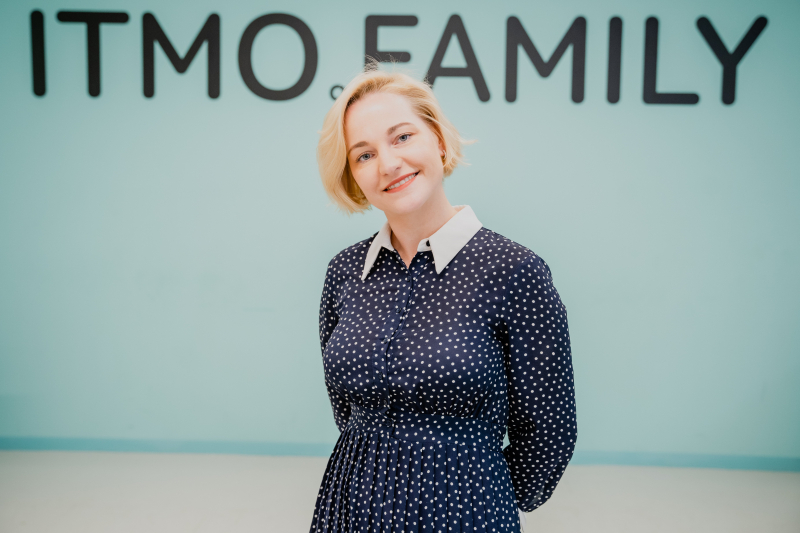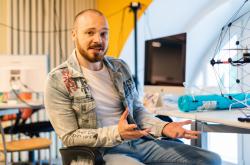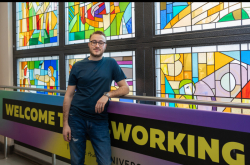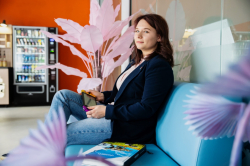About ITMO University
How long have you been working at ITMO?
I used to work in the retail industry and was engaged in the project activities at Lenta’s import department. In 2018, when I was on my maternity leave, ITMO became interested in my job experience at the company and the fact that I held classes on soft skills and offered me to co-author a course on efficient team management. That’s how I started to work part-time at ITMO. It was a great start! I stood at the very origins of this module and put together a team of businesspeople, psychologists, and coaches to teach this course at the university. Since then, I became a full member of ITMO.Family. Now, I perform a wide range of activities at the university: I create and teach courses, as well as run a large, close-knit team of 30 teachers who are responsible for six courses.
Do you feel different about working at university now?
At first, I saw this job as a hobby, something interesting yet temporary. But now I’m truly a part of ITMO.Family and here I see opportunities for my professional development. Before that, I planned to stay in retail but now this chapter of my life seems to have come to an end. I want to build a career in education.
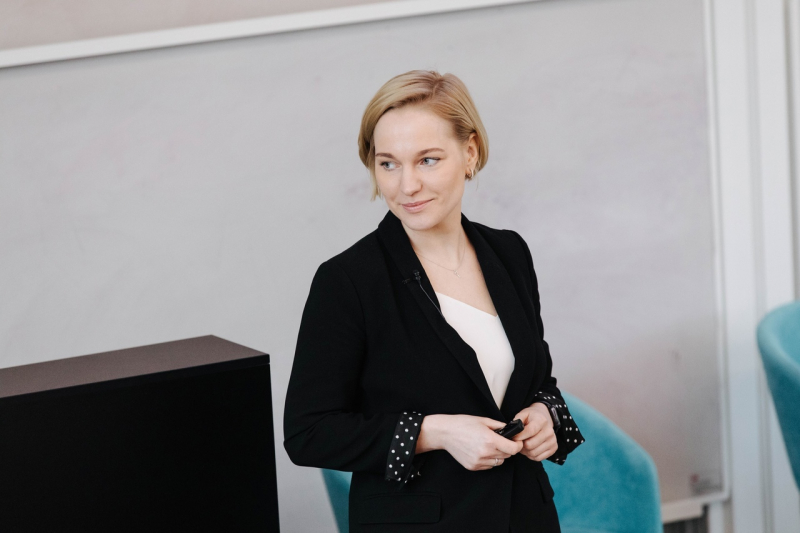
You’ve studied at another university, so perhaps it’s easier for you to make a fair comparison. What makes ITMO stand out among other local universities?
ITMO is very different. I have two degrees received at the Faculty of Philosophy (politology department) and Faculty of Journalism of St. Petersburg State University. This means a classical academic education. ITMO is, in turn, a completely different world. I love everything it does now. This is a new kind of education that focuses on students and practical knowledge. And that’s awesome!
Considering cultural differences between these two worlds, was it hard for you to return from a large corporation back to the university?
These are two absolutely different corporate cultures. Although the retail industry offers good benefits and promotes respect for people, it’s an extremely hierarchical structure. It’s full of control and bureaucracy. ITMO is different. I feel like it’s a friendlier organization where everyone is a part of the family – that’s why it’s called ITMO Family. And that’s what I appreciate the most, it provides you with new opportunities for being creative.
About teaching
What do you think is the most important thing in teaching? What's the secret to being a great teacher?
Over the past three years, I revised this topic over and over again. When I worked on the first course, I didn’t really understand who my audience was but, luckily, most of them were mature people. Yet everything changed when I started to work with Bachelor’s students. These are completely different people with their own cultural and age-related features. As a result, I had to redesign my program and transform my teaching style. I believe that teachers should be open-minded, ready for changes, and adapt their courses for students’ needs.
You mostly teach future physicists, chemists, and engineers who are often skeptical about non-core subjects, especially humanities. Was it hard to persuade them to study soft skills?
Students will learn only if they understand why they need this knowledge, and we put a lot of effort into creating insightful courses. In the first class, we reflect on why students need soft skills and what they can bring into their lives. And I think we’re doing a great job! The feedback shows that our course has around 85-90% satisfaction score. Moreover, with age and experience comes a desire to master soft skills as people start to see their true value in real life.
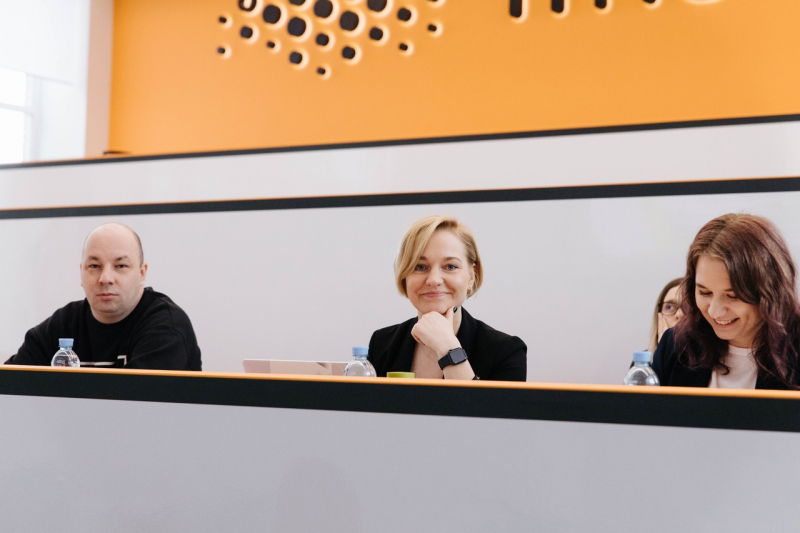
What proves their value?
We live in a rapidly changing world. The pandemic has turned our lives upside down. Nothing is permanent anymore: while some jobs transform, others vanish. We have to adapt to a new reality, and here soft skills come to our rescue. It is emotional intelligence that helps you better understand yourself and your desires, as well as communicate with others and work in teams.
What’s the difference between teaching soft and hard skills?
Our course is less theory-oriented, although, of course, we teach theory, too. We understand that our students have other majors and it’s not their core subject. That’s why we give our students theoretical knowledge that can help them develop necessary skills. Most of our classes are devoted to practical work.
About family
How do you balance your work and family life?
I have two sons, seven and five years old. Now, it’s not so hard to maintain a good work-life balance. My life today inspires me and I like the fact that I can take the best of the two worlds.
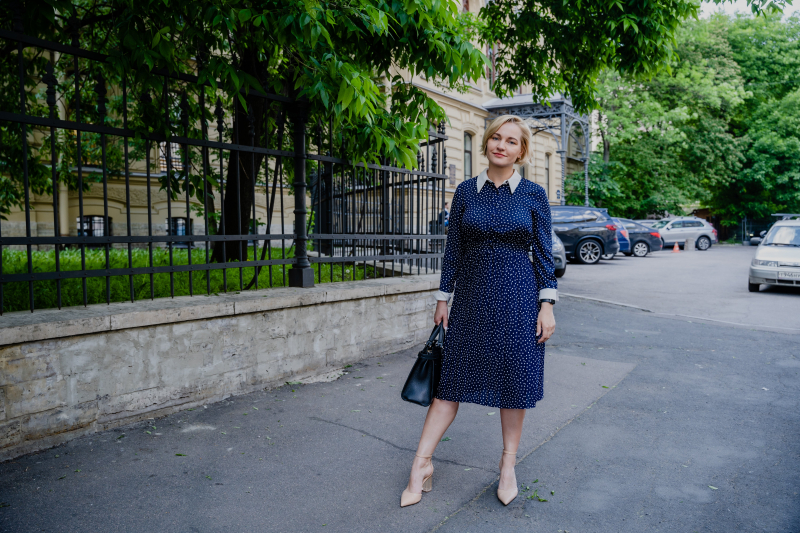
With the birth of my kids, I became interested in emotional intelligence. It helps people to overcome stress, understand the needs of their kids, and learn how to communicate with them, raise and teach them. What I learn at work, I then apply in my personal life, and vice versa.
Of course, our students are not kids but I know from my sons that you can learn through a game, studying can be fun, and a good mood is also a good motivation. This whole year, I prepared my eldest son, Nikita, for school. He learned to read, count, and write. Here all my practices came in very handy. Plus, it’s also a good way to test your methods.
About hobbies
With family and work, do you ever feel like you need a break? How do you relax?
Of course, sometimes I feel like escaping to some hobby but I don’t have enough time. I prefer to prioritize and spend my free time with my family. I also enjoy meeting with my friends, going out, and traveling. Reading is my passion, too. I love psychology and fiction. Sometimes I re-read Russian books but also enjoy modern American authors. One of my recent discoveries is Donna Tartt.
What other hobbies do you have?
There are no specific hobbies. I like to be active: go to theaters or museums, and meet with my friends. I’m a big fan of traveling. We used to spend three months per year traveling before the pandemic hit. I’ve been to many countries, and I hope it’ll be possible again soon.
About ITMO.EduLeaders
Yulia Romanenko and Alexey Peregudin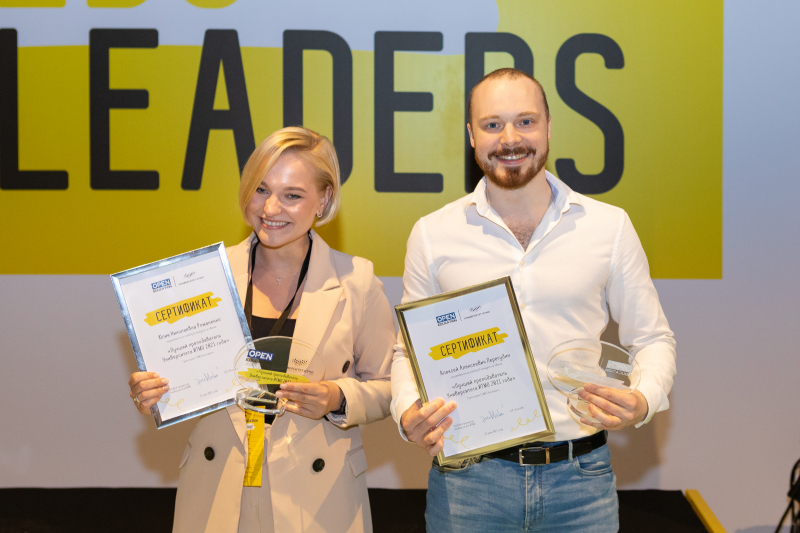
Why did you decide to apply?
Probably because we had a hard time with our course on emotional intelligence. Initially, we planned it as an offline course but then we had to switch to online. Nevertheless, it was a huge success and we received positive feedback. So, why not apply? I also wanted to share our academic achievements. Many teachers don’t really understand what soft skills are and some see them as some kind of unusual practices or even seances (laughs). This is not true, and such competitions can help us promote our product.
How close are you to achieving this goal?
I think we are on the right path since I wasn’t the only winner in this category.
What does this victory mean to you?
Probably, a greater sense of community. At the award ceremony, I was more thrilled by people and not the award. There are many talented people at ITMO. I also enjoyed the pitches of my colleagues who shared their best practices. This helps to build a strong and friendly community of like-minded people.
